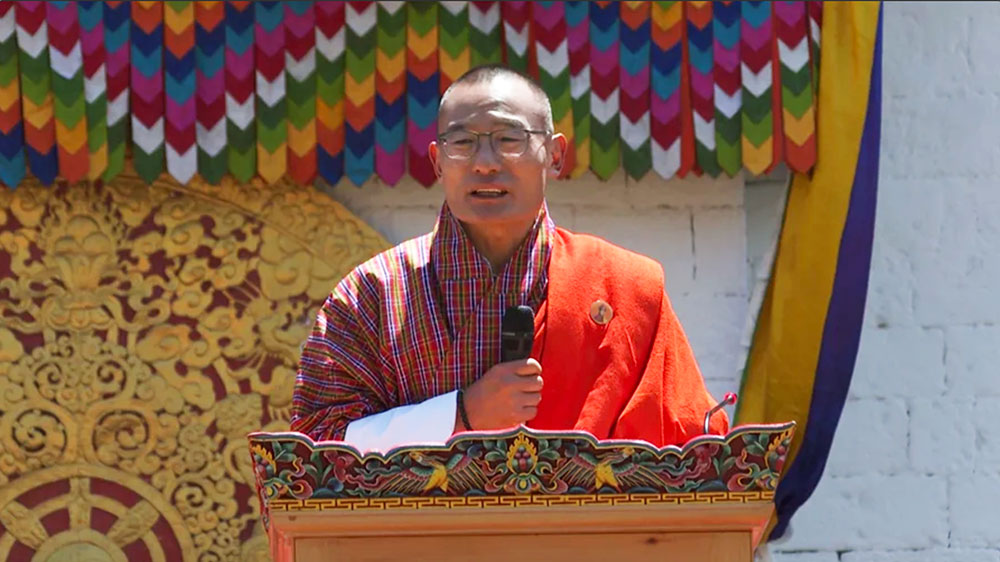
The government has fulfilled one of its key campaign promises by officially declaring Saturday as a non-working day for schools.
Prime Minister Tshering Tobgay announced this during the Teachers’ Day celebration at Changlimithang in Thimphu on May 2nd.
The government’s decision comes after several months of delay, which also met with criticism from the public. Concerns were raised that the delay might have been a tactic to gain voter support.
However, the Prime Minister clarified that although the government had aimed to implement the changes shortly after assuming office, the process required thorough consideration and involvement of various stakeholders. This, he said, was essential to ensure that the quality of education was not compromised.
“We instituted a committee, consulted parents, teachers, principals, and experts both from within and abroad,” the Prime Minister said.
He added that, given the current education system in the country, making Saturday an off day would further standardise the education system. “With such a rigorous process, we have made this decision with confidence.”
He said that Bhutan should not fall behind and that the government’s aim was to improve the education system for the benefit of the younger generation. He added that it was also in alignment with His Majesty’s vision for the Gelephu Special Administrative Zone.
The Prime Minister acknowledged the efforts of the education fraternity in realising the vision of the Royal Kasho thus far, noting that there is still progress to be made. This includes conducting a thorough review of the curriculum and other aspects of the education sector.
“To ensure standard quality and a cohesive system, it is crucial to provide adequate training and professional development programs for our teachers,” Lyonchhen said, stressing that the government would prioritise professional development for teachers as a key area in the 13th plan.
Welcoming the changes in the system, teachers in Thimphu said that having Saturday off would provide sufficient rest for both teachers and students,contributing to a higher quality weekend. They noted that burnout during the weekdays is a common experience and believed that this adjustment would help alleviate such concerns.
A teacher said that with Saturday designated as a non-working day, teachers could enjoy a completely free Sunday. Tasks typically done over the weekend, such as laundry and completing lesson planning, could be accomplished on Saturday itself, he added, allowing for a more relaxed and rejuvenating weekend.
The ministry, one teacher said, should be clear and should not leave the usage of Saturdays solely at the hands of principals.
Teachers said that if professional development programmes and activities continue to be scheduled on Saturdays as is currently practiced, the change to designate Saturday as off day would have little impact on them.
They also noted that in the past, the ministry allowed principals the flexibility to decide Saturday’s programmes, resulting in a variety of activities being planned for the day.
“A clear set of instructions from the ministry should govern all decisions prior to implementation to ensure uniformity,” said a teacher, stressing on the need for clarity and consistency in directives regarding Saturday activities.
In 2019, the Druk Nyamrup Tshogpa (DNT) introduced the same initiative but mandated schools to utilise Saturdays for conducting professional development programmes and co-curricular activities whenever necessary.












